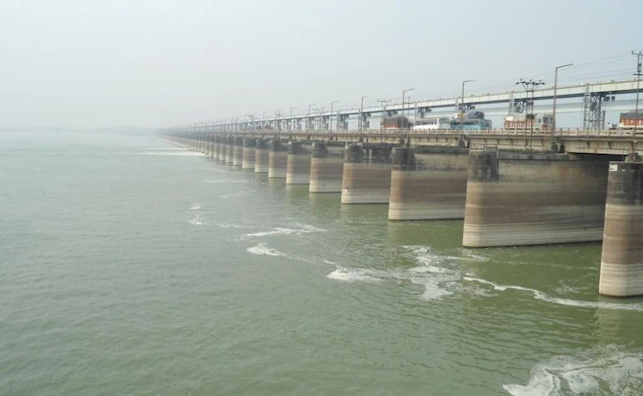Claim:
Some reports circulating in Bangladesh suggest that the severe floods currently devastating the country were partially caused by India opening the gates of the Farakka Barrage in West Bengal.
Fact:
The Indian government, through the Ministry of External Affairs (MEA), has strongly refuted these claims. The MEA clarified that these reports are false and are based on misinformation.
Evidence:
- Official Response: The Ministry of External Affairs (MEA) of India has dismissed the claims linking the floods in Bangladesh to the operation of the Farakka Barrage. MEA spokesperson Randhir Jaiswal stated that these allegations are unfounded and have been spread through fake videos, rumors, and fear-mongering, all aimed at creating misunderstanding between the two nations.
- Technical Clarification: The Farakka Barrage is not a dam but a barrage, meaning it doesn’t store water but regulates its flow. The MEA explained that the water flow from the Farakka Barrage into Bangladesh is a natural, seasonal occurrence due to increased rainfall in the Ganga river basin. The barrage only diverts a small portion of water, while the majority of the flow continues downstream into Bangladesh.
- Data Sharing: India routinely shares data regarding water levels and flow with Bangladesh through the Joint River Commission. This practice ensures transparency and cooperation between the two countries. Relevant data was provided in a timely manner during the current monsoon season as well.
- Background on Farakka Barrage: Located on the Ganga River in West Bengal’s Murshidabad district, the Farakka Barrage was built to manage silt and support the operation of the Kolkata port. The Ganga Water Treaty of 1996 between India and Bangladesh regulates the sharing of water from the Ganga, ensuring that Bangladesh receives its due share as the river continues its natural flow.
- Flood-Prone Region: Bangladesh is highly vulnerable to floods due to its geographical position and the effects of climate change. A 2015 World Bank analysis estimated that 3.5 million people in Bangladesh are at risk of annual river flooding, a risk that is exacerbated by increasingly erratic weather patterns.
Conclusion:
The claim that the recent floods in Bangladesh were caused by the opening of the Farakka Barrage gates in India is false. The floods are primarily due to heavy monsoon rains and overflowing rivers, with no connection to the operation of the Farakka Barrage. By staying informed and vigilant, you can help prevent the spread of misinformation.
For All News Buffs
Misinformation refers to false or inaccurate information that is unintentionally spread. It can occur due to misunderstandings, misinterpretations, or errors. Misinformation is often shared innocently, without malicious intent.
Examples of misinformation include:
Outdated Information: Sharing facts that were once true but have since changed.
Rumors: Spreading unverified stories or claims.
Mistaken Identity: Incorrectly attributing an event or statement to the wrong person.

